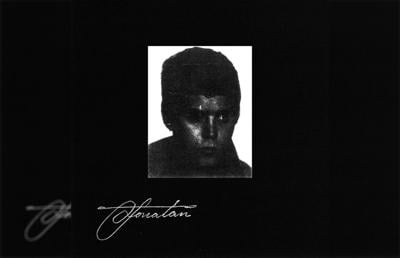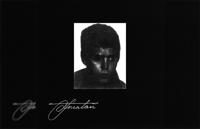Grade: 4.0/5.0
It’s late spring and you’ve come home to your rustic abode in the countryside after a long journey. The 4 p.m. sunbeams stream in through the dusty windows. The birds are chirping, the landscape abloom. An uncanny melancholia creeps up on you. Have you finally found God? You haven’t been back in years, but the scene is just as serene as you imagined, just as comforting as you remember. Everything has led to this present moment of return. The party is officially over, but it was nice while it lasted. Now at home, you are just you — all the versions of you — the good, the bad and the ugly. It’s all you.
This is how it feels listening to Jonatan, 28-year-old Swedish rapper Yung Lean, real name Jonatan Leandoer Håstad’s newest LP, released May 2. As a longtime follower of Yung Lean and his chaotic trajectory as an artist, this meditative sentiment of coming home after a period of profound turbulence and adventure is deeply sobering.
It’s the Year of the Snake in 2025 and we’re shedding our skin, stripping down to the pure, raw core to unearth something new. This is precisely what Yung Lean does in Jonatan — he traverses beyond his emo cloud rap roots into something genreless, borrowing from the likes of ambient, alternative and indie pop. Three years in the making, it’s the longest he’s ever spent on a single record. The album consists of 13 tracks with no features, and he swaps out his usual go-to collaborators Whitearmor, Gud, Yung Sherman and the rest of Drain Gang for producer Rami Dawood’s acoustic, orchestral instrumentation and angelic choirs. No more intricate 808s or the “f—b—tches get money” lyrical ethos that permeated his earlier works. Or in his words to GQ, “A bit like, uncle album. Old man type s—.”
The album’s melancholic, poetic lyricism shines most notably in the tracks, “I’m Your Dirt, I’m Your Love” and “Paranoid Paparazzi.” Paired with minimalist acoustic guitar riffs and downtempo orchestral production, Jonatan feels like a creative merging between Håstad’s two artist personas, Yung Lean and Jonatan Leandoer96, the latter being his lesser-known, more personal, alternative, indie alter ego. Until now, it stood in contrast to his mainstream, hip-hop-oriented moniker as Yung Lean. In choosing to bear his real name as the album title, Yung Lean brings the emotionally intimate, stripped-back sound of Jonatan Leandoer96 to a wider audience. With Jonatan,he sheds his old live-fast-die-young (yung) character of Yung Lean to reveal Jonatan, the true self beneath the chaos.
If Jonatan embodies the stripped-back vulnerability in the current era of Yung Lean, then its diametrically opposed predecessor is his 2016 rage-filled, classic cloud rap sophomore album Warlord, the project that first converted me to a fan. Recorded in only 6 months when he was still 19 while on a near-fatal drug-fueled bender in opulent Miami, Warlord is peak Yung Lean-branded, hedonistic hip hop excess: drugs, b—hes , designer clothes and psychic turmoil. It’s drenched in that careless, self-destructive ethos of youthful swagger. Juxtapose this with the slowburn of Jonatan, released nearly a decade later after spending multiple years developing at home in suburban Stockholm, living the slow life among the retired folks. Gone are the days of coke-snorting, Xanax-popping iterations of the Yung Lean persona. He’s traded that for sobriety, trips to the local cafe, boxing and making whimsical ceramic sculptures. One might even say he’s entering his unc era.
We’re witnessing the newest epoch of Yung Lean’s metamorphosis — a slow, floral cultivation toward authenticity, and a new beginning with infinite space for further mastery. The peak has yet to be reached. From his DIY cloud rap origins to the diverse, genre fusion of Jonatan, there’s a throughline of rawness and a desire to evolve. Jonatan is Yung Lean’s homecoming journey, a sincere reflection of his spiritual passage to self-transcendence and ultimately, an ode to worldliness and the artist life. He demonstrates that, contrary to popular belief, true creative awakening comes not from lingering in darkness, but from one’s willingness to grow and find the light. Because when the sun sets at the end of the day, you are just you — wherever you are — all the darkness and light, nothing and everything. God is by your side, all of you, the multifaceted, ever-evolving you.



